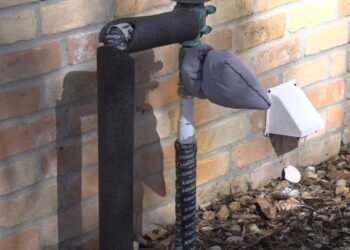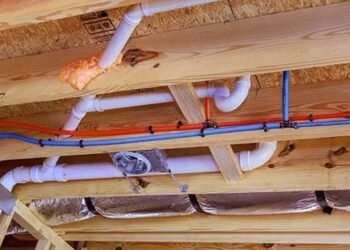Before embarking on our discussion, here are some foundational insights to consider:
- Deciphering the function of heat pumps in achieving energy-efficient temperature regulation.
- Investigating the financial perks that accompany the installation of a heat pump system.
- Pondering the environmental merits afforded by adopting heat pump technology.
- Guidelines for selecting an appropriate heat pump tailored to individual housing needs.
Energy efficiency and cost savings are cornerstones of modern home stewardship. In an era where economic prudence and environmental responsibility are paramount, heat pumps emerge as a beacon of innovation in home comfort systems. The amalgamation of these benefits is particularly evident with efficient heat pumps which offer a glimpse into the widespread adoption of this technology. Heat pumps are rising to prominence, not only in the frosty climates of Canada but also globally, as they provide versatile solutions for heating in winter and cooling in summer, ultimately streamlining energy expenditure and enhancing domestic well-being.
Advantages of Heat Pumps Over Traditional Heating and Cooling Methods
As more homeowners become mindful of their energy consumption and its ramifications, efficient heat pumps in Ottawa stand out for their plethoric benefits, markedly outstripping their traditional HVAC counterparts in several domains:
- Top-Tier Energy Efficiency:Heat pumps operate with exceptional energy efficiency as they transfer heat rather than generate it, leading to significant energy savings and reduced utility bills.
- Economic Soundness in the Long Term:While the upfront installation fee may be steep, the subsequent diminution in monthly energy costs makes heat pumps a wise financial commitment for the long haul.
- Diminished Carbon Footprint:One of the most persuasive arguments in favor of heat pumps is their contribution to reducing greenhouse gas emissions, primarily when sourced from renewable energy, which amplifies the eco-consciousness of one’s dwelling.
Understanding the Mechanics Behind Heat Pump Operations
At the core of the heat pump’s appeal is its remarkable capacity to relocate thermal energy contrary to the spontaneous direction of heat flow by absorbing heat from a cooler space and releasing it into a warmer one. This energy-efficient marvel operates on electricity. It consists of an indoor unit called an air handler and an outdoor unit similar to an air conditioner’s condenser. In heating mode, the cycle starts when the outdoor unit extracts heat from the air, even in cold weather, and amplifies it via a compressor. The heat is then transferred indoors via circulating refrigerant, which releases the warmth into the home. Conversely, in cooling mode, the system reverses, removing heat from the house’s interior and expelling it outside, thereby cooling the indoor space.
The Eco-centric Perception of Heat Pump Technology
Indeed, the environment can reap profound benefits from the widespread use of heat pumps. They are notably adept at slashing carbon emissions—vital in circumventing the most dire effects of global warming—by exploiting less fossil fuel-derived electricity than conventional heating methods. The potential for heat pumps to integrate with renewable energy sources further cements them as a sustainable choice, assuring homeowners that their carbon footprint is significantly restrained with each kilowatt-hour.
Delving into the Economics of Heat Pump Installation
While their efficiency and environmental friendliness easily justify the allure of heat pumps, a pragmatic analysis of their cost-effectiveness is also paramount. The initial expense can be considerable, but this investment is typically offset over time through marked reductions in energy bills. Additionally, depending on one’s locale, various incentive programs—ranging from tax credits to rebate offers—can alleviate some of the financial burden of transitioning to a heat pump system.
Heat Pump Efficacy Across the Climatic Spectrum
A prevalent misconception surrounding heat pumps is their perceived ineffectiveness in climate extremities, yet technological breakthroughs have surmounted this challenge. Contemporary heat pump models come bolstered with features that ensure reliable function in various weather conditions. Thus, heat pumps are a universally viable option for modern homes, from the scorching heat of desert landscapes to the chill of northern frost.
Parameters to Consider When Selecting a Heat Pump
With an eye toward the unique requirements of every home, the selection of a compatible heat pump is governed by several decisive criteria. Factors such as the property’s spatial dimensions, the degree of insulation, and the prevalent climate all play pivotal roles in determining the most suitable choice. Delineating the heating and cooling demands of one’s residence and marrying these with the capabilities of various heat pump models ensures optimal synergy between one’s home environment and one’s heating/cooling system. A consultation with a knowledgeable HVAC specialist often proves invaluable in this discernment process.
Ensuring the Durability and Performance of Your Heat Pump
The purchase of a heat pump signals the commencement of a long-term relationship that necessitates nurturing through regular maintenance. Commitment to yearly service can preempt and rectify minor issues before they escalate, safeguarding the heat pump’s functionality. Opponents of neglect, such as heat pumps, thrive on attention—from cleaning filters, checking fluid levels, or verifying system operations—all of which lead to a prolonged and effective service life.












